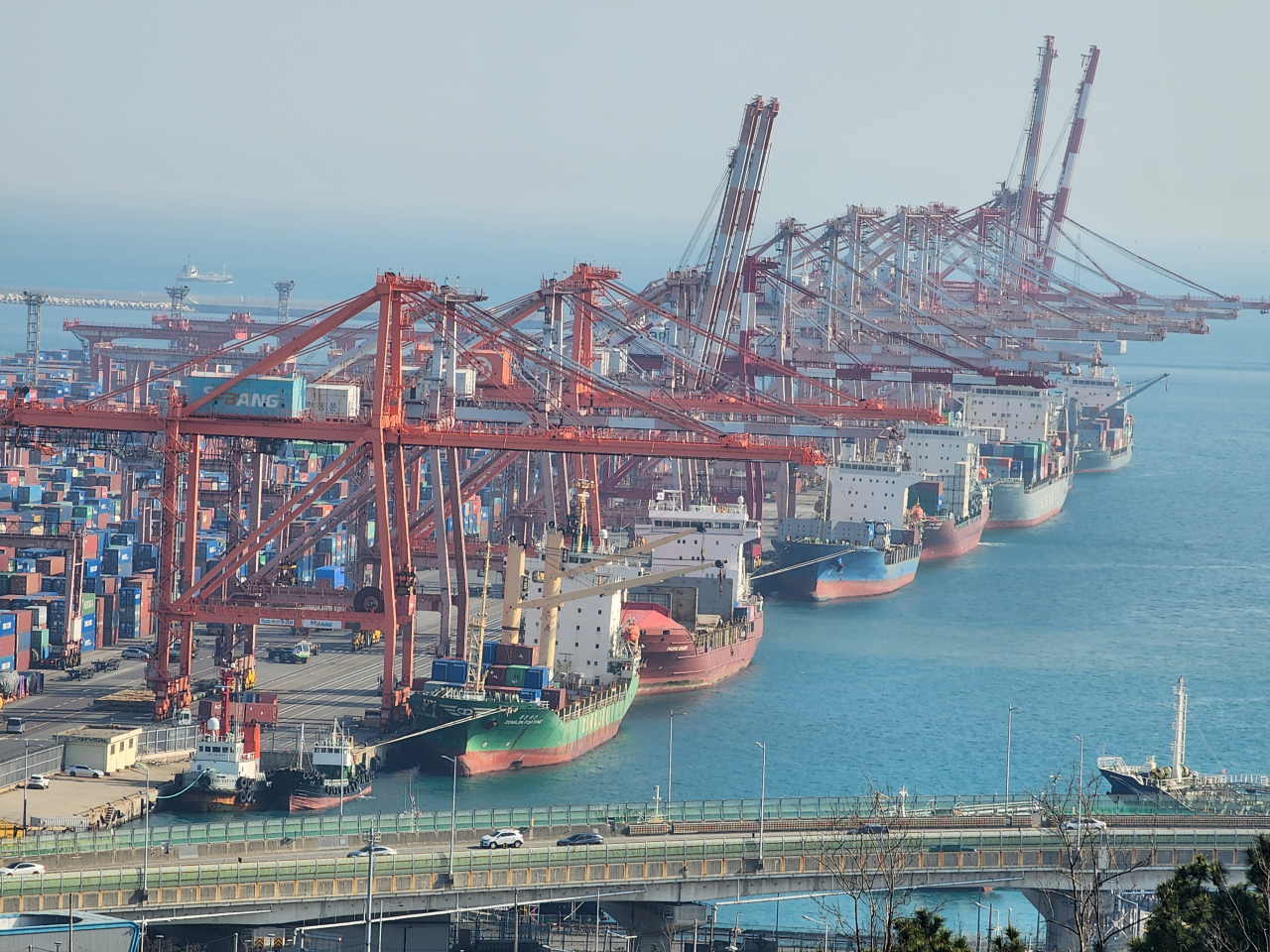Economy
Korea's economy to stop growing without drastic labor change: FKI
 |
A port in South Korea's southeastern city of Busan. (Yonhap) |
South Korea’s economy is expected to stop growing and hit a negative mark in less than 40 yeares if a plunging birth rate and rapidly aging population continue, according to the Federation of Korean Industries on Wednesday.
The FKI, a major economic organization, projected that the potential growth of Asia’s fourth-largest economy would sink to minus 0.1 percent in 2061 and afterward.
However, the expansion of the labor supply could drive up the potential growth of Asia’s fourth-largest economy by 0.4 to 0.8 percentage points from previous estimates for between 2026 and 2070, it said.
If the labor supply increases, assuming that the fertility rate, economic activity participation rate, and labor migration expands, the country’s gross domestic product is expected to increase from 47.6 trillion won to up to 854.4 trillion won more than the estimate, recording an average GDP of 3559.2 trillion won from 2061-2070.
Korea's demographic crisis is taking a toll on its economy and society from issues involving local extinction, shortage of defense forces, increasing dependency ratio and weakening investment.
In 2023, the birth rate in Korea fell to 0.72 births per woman, one of the lowest among the member countries of the Organisation for Economic Cooperation and Development. The figure first dropped below one in 2018.
The country is widely expected to become a super-aged society in 2025, in which the proportion of those aged 65 and older will hit 20 percent of the total population. The country became an aged society in 2017, as the proportion of such people exceeded 14 percent.
Against this backdrop, the FKI’s analysis showed that the potential growth rate will move downward steadily from 1.0 percent between 2031 and 2040 to 0.7 percent between 2041 and 2050. From 2051 to 2060, the figure would slip to 0.2 percent.
Despite the staggering potential growth rate, the country’s GDP per capita will expand at an annual rate of 1.3 percent in the 2030s to exceed $40,000 in the late 2030s and further grow to $50,000 in the 2050s due to the decreasing population. Korea’s GDP per capita stood at $32,400 in 2022.
The FKI said the low birth rate is a make-or-break issue that should be the country's top priority, but the rebound of births will not instantly improve economic conditions, as it takes at least 15 years for newborns to grow and enter the labor force.
It picked declining labor supply as a key factor that drags the economy down.
“For the economy to make a new leap, a strategy for labor supply expansion including immigration policies should be pushed forward,” said FKI senior researcher Cho Gyeong-lyeob.
To increase participation in economic activities, measures for women, elderly people and youth not in employment, education or training should come under consideration.
“Programs that encourage work and life balance, career development programs, as well as an overhaul of the wage system centering on performance and mentoring service, could be included in such measures," Cho said.
A drastic change is needed to attract more foreigners to the labor market by relaxing visa requirements and lowering the bar for foreigners to obtain permanent residency and Korean nationality for foreign talent.
“Korea’s national competitiveness will be weakened if foreign workers are regarded as a mere means of relieving labor shortage as it would delay structural reform of industries and companies,” he said.
A separate survey conducted by the FKI showed that the openness of the Korean labor market to foreign workers in major sectors remains the lowest among OECD members. In 2021, the proportion of professionals among foreign workers in Japan accounted for 22.8 percent, compared with 5.3 percent tallied in Korea.








